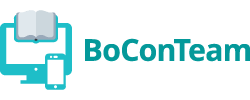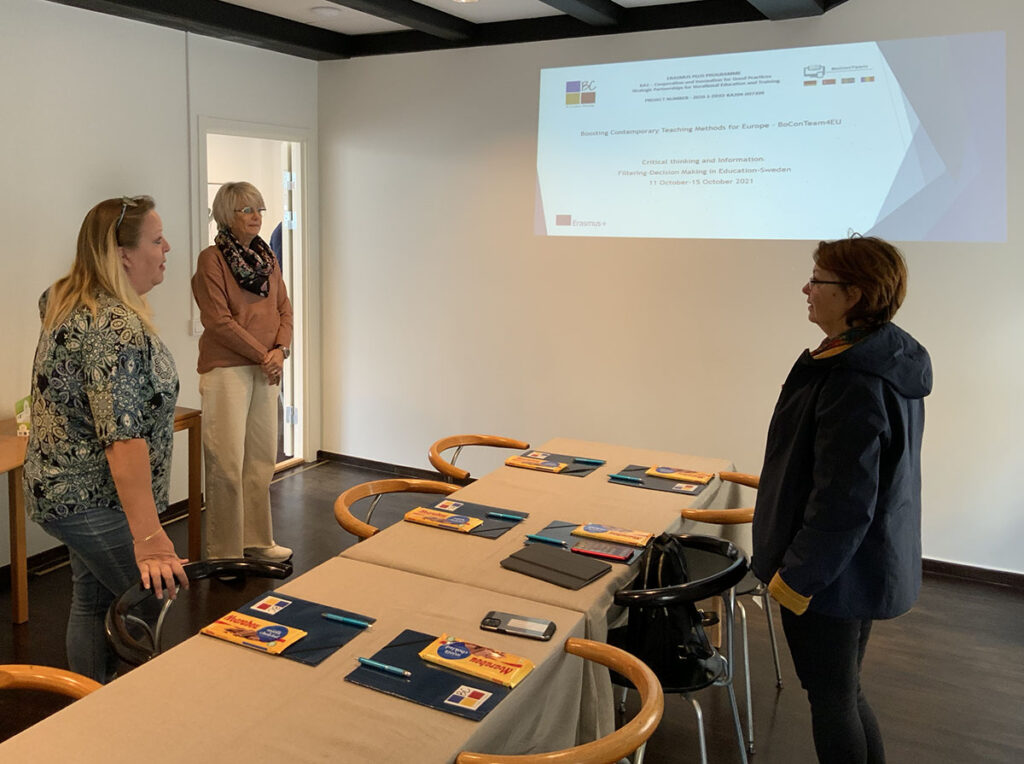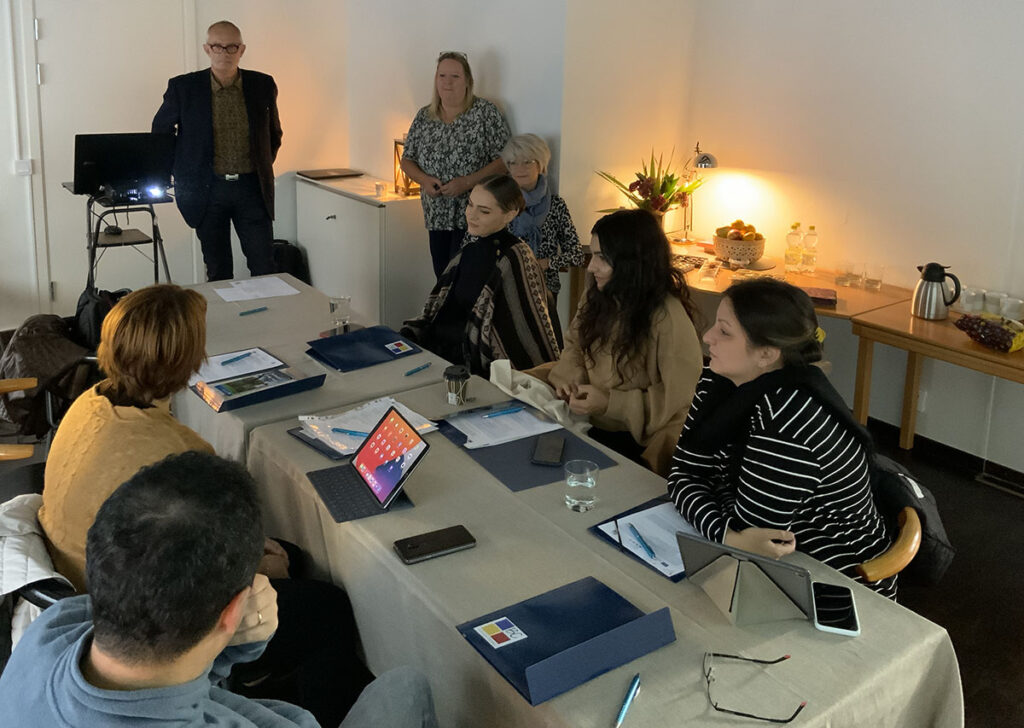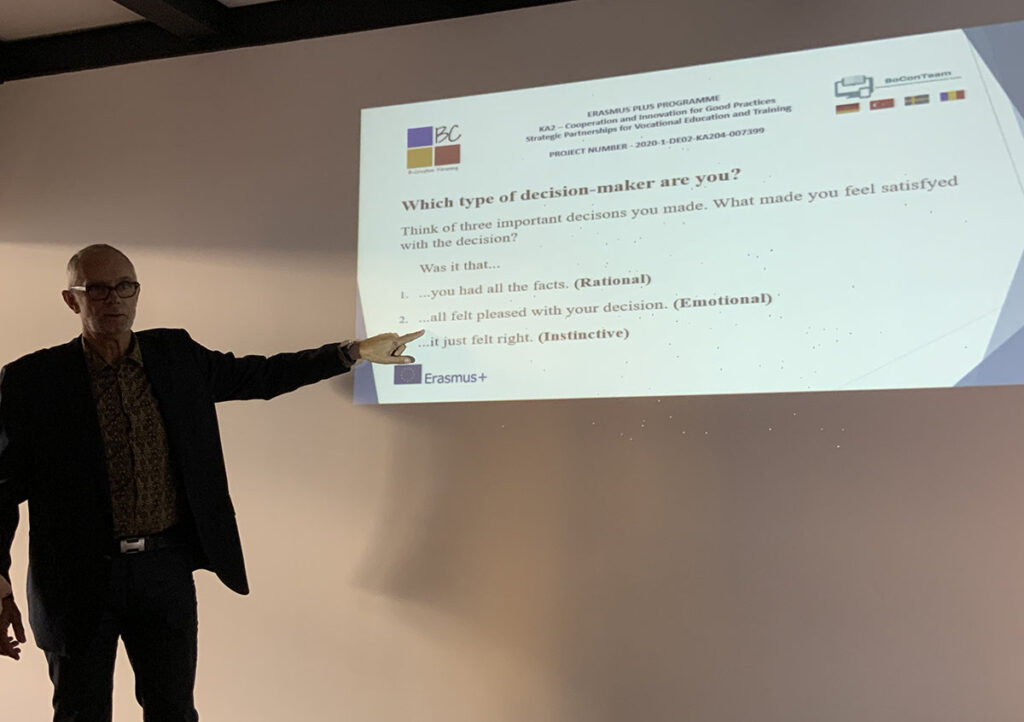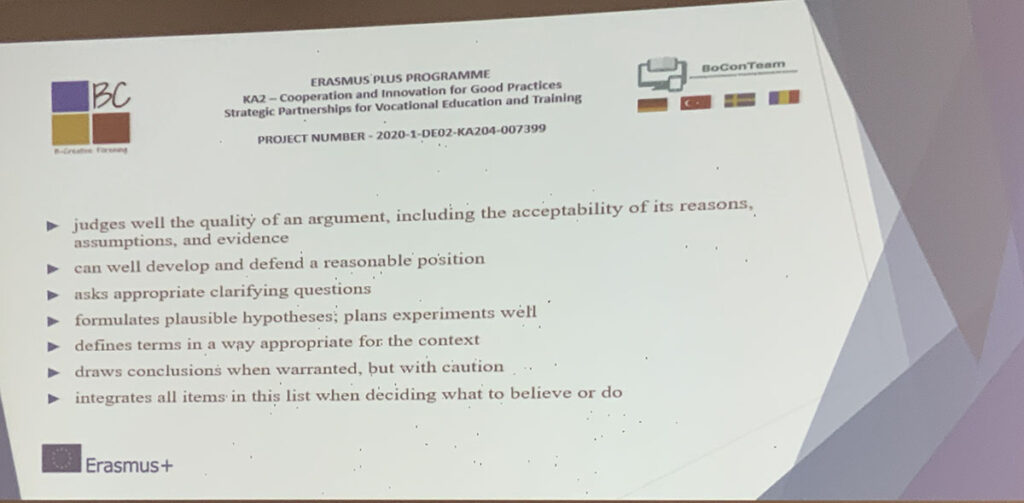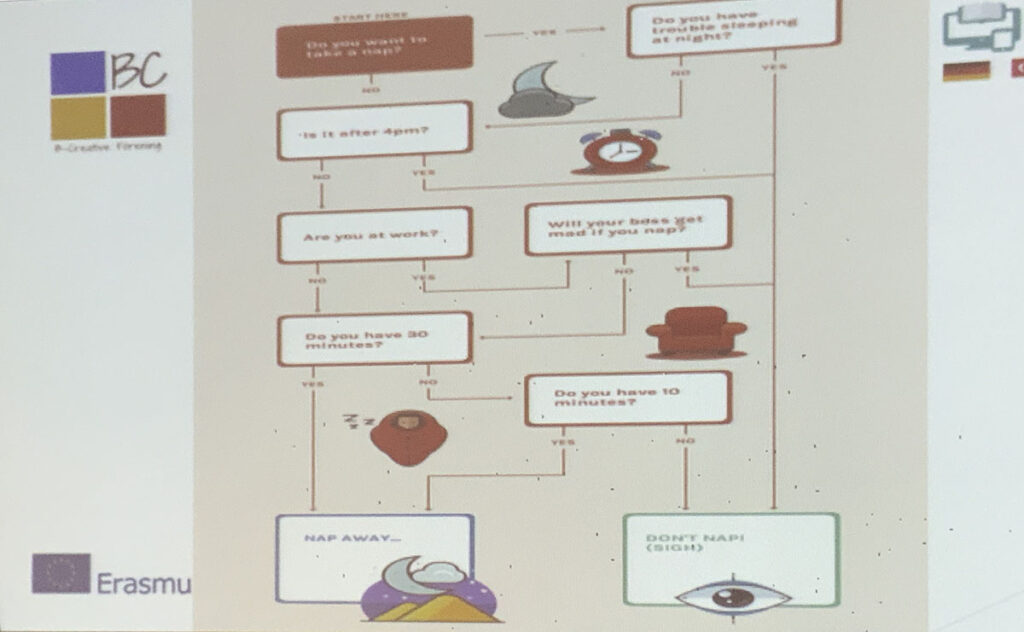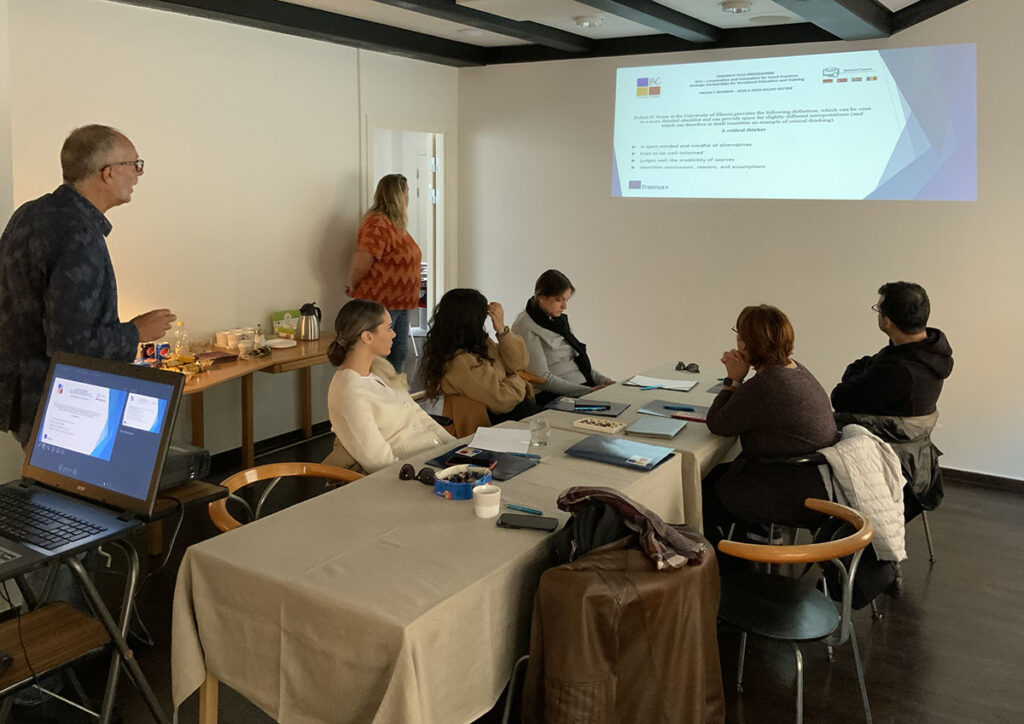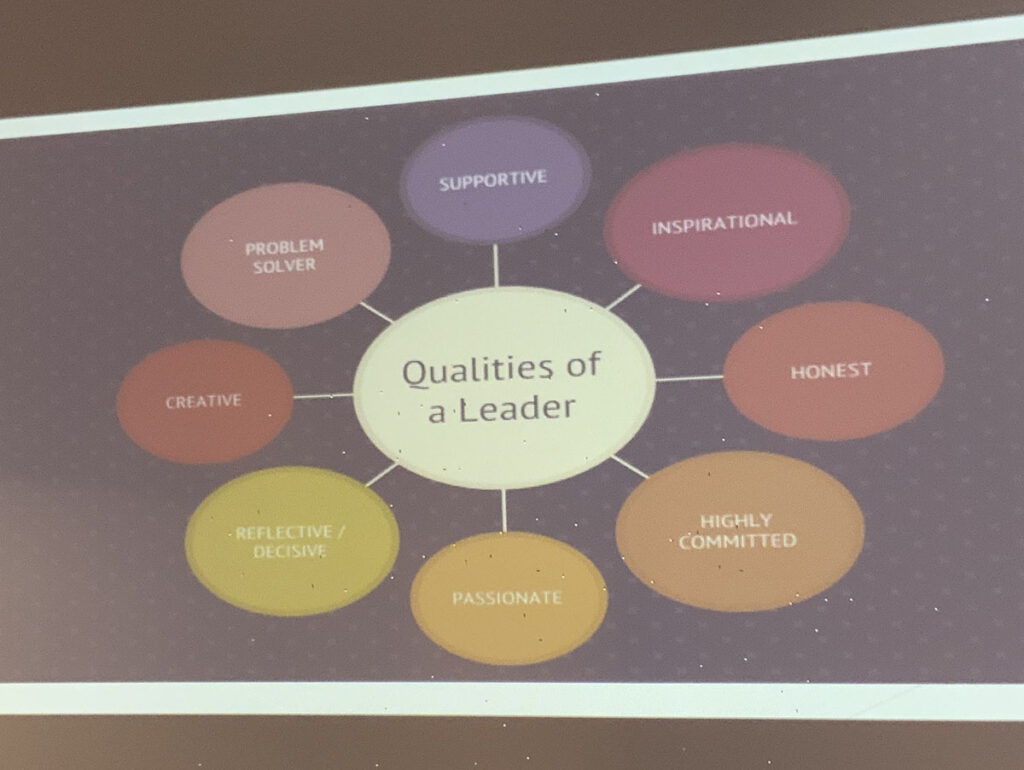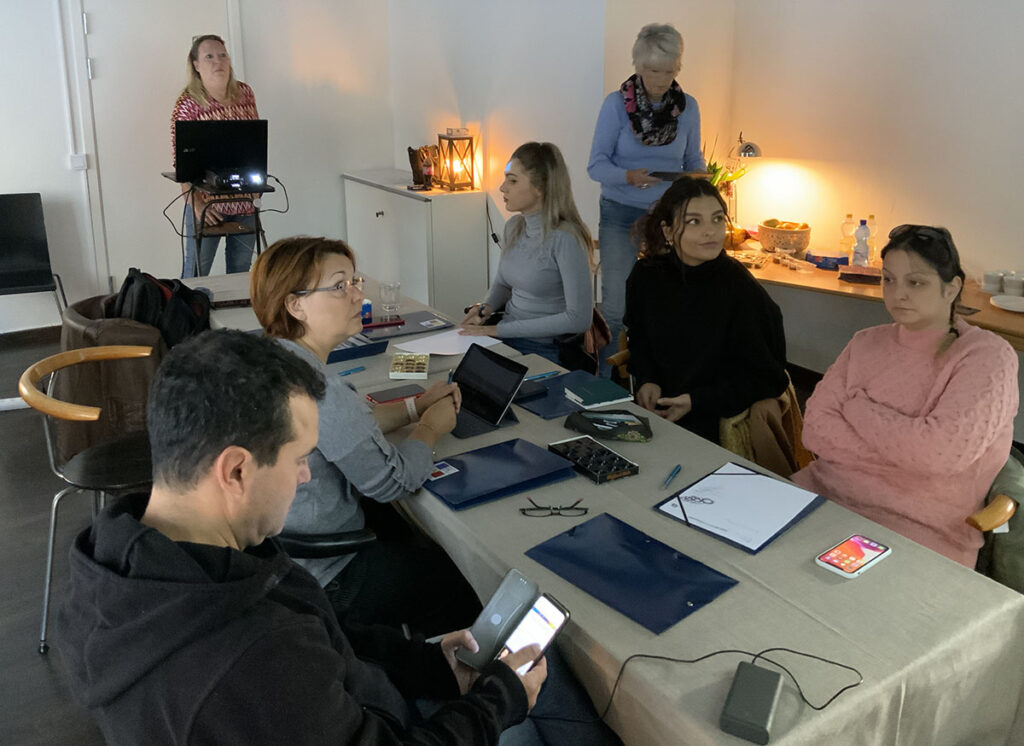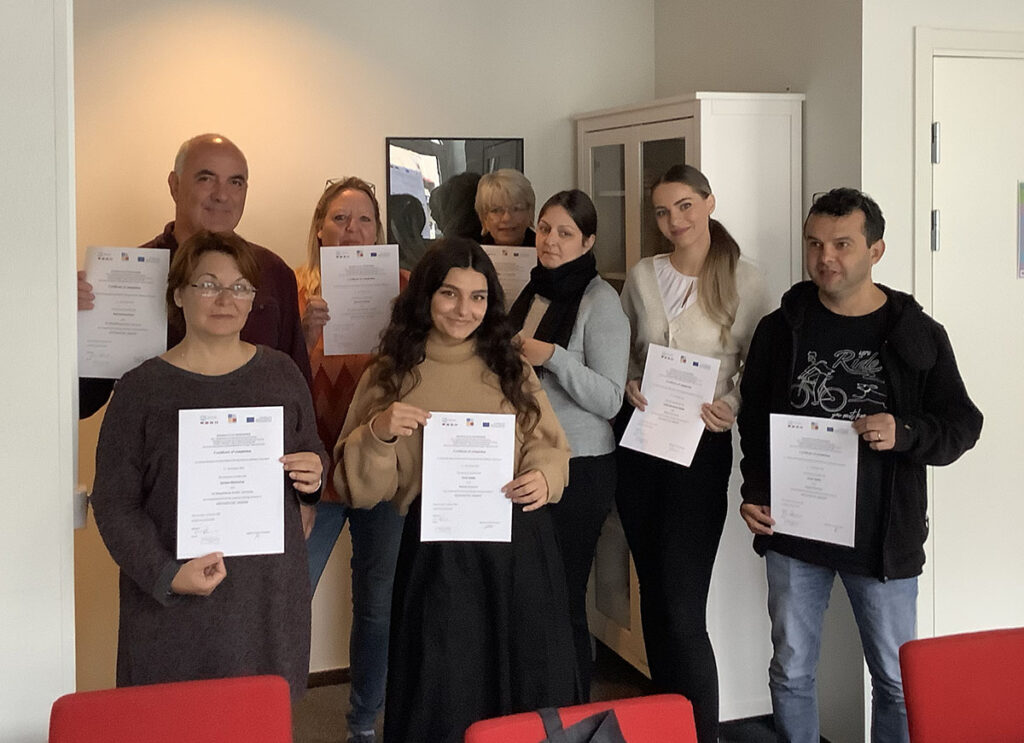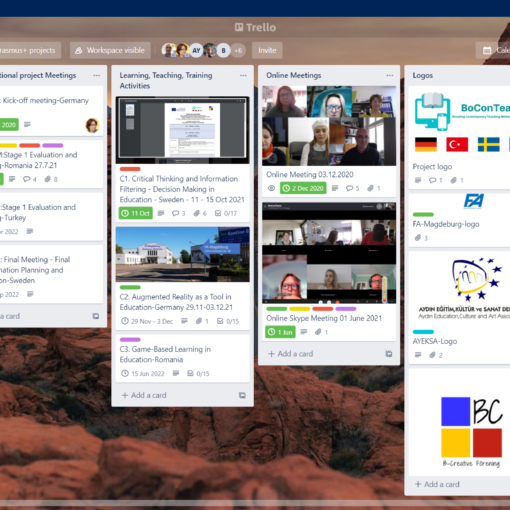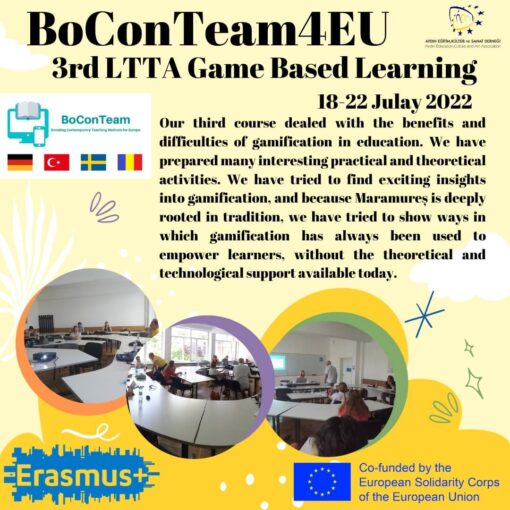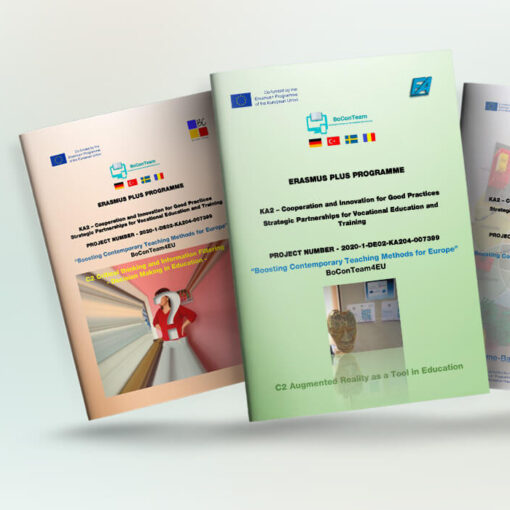11.-15. 10. 2021 at Be-Creative Office, Kristianstad / Sweden
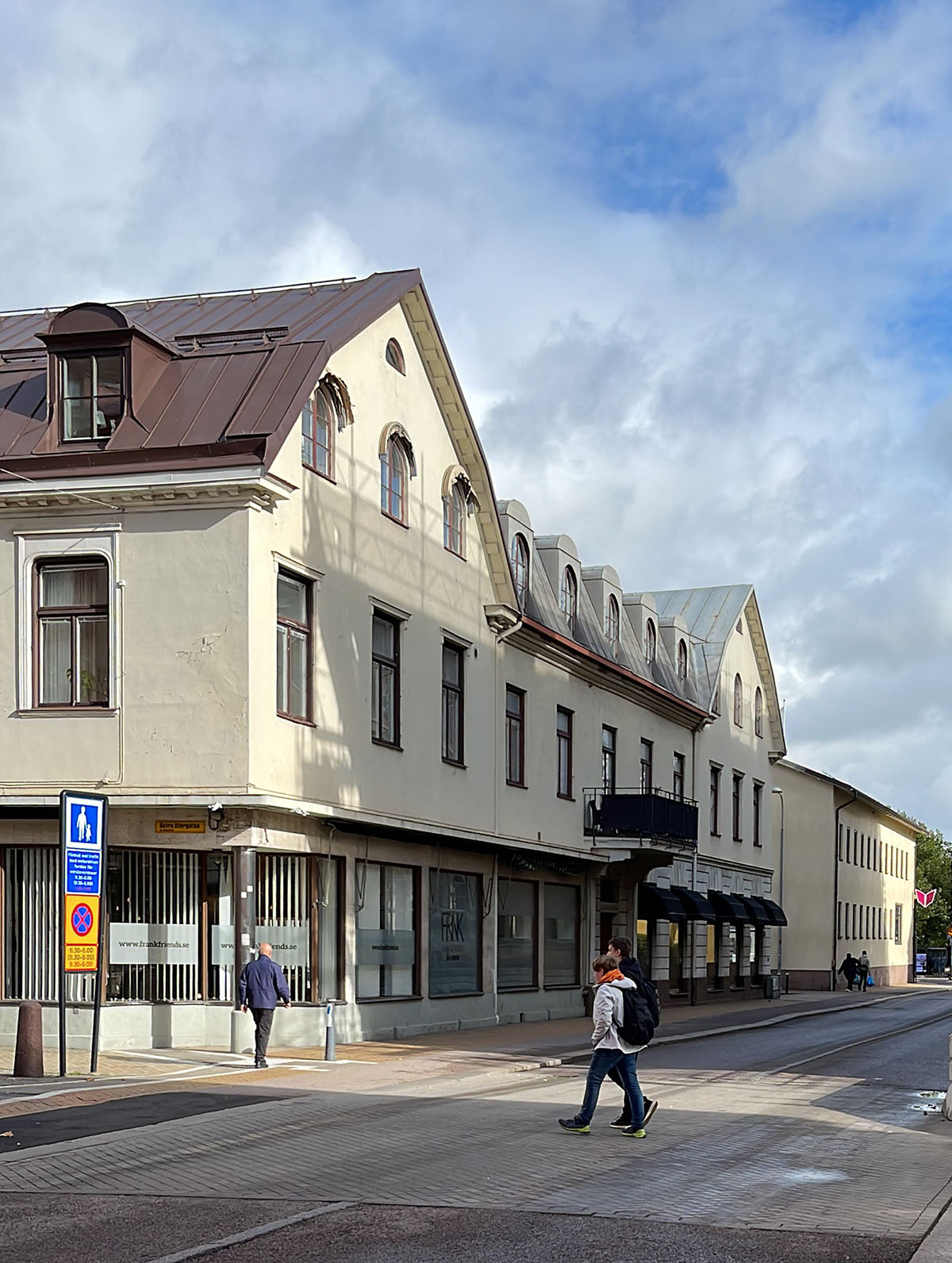
Critical thinking is a term that tends to be misunderstood as a social perception. Consisting of mental processes such as reasoning, analysis and evaluation; CRITICAL THINKING is a form of careful, active, open to change and self-correcting, controlled and objective thinking.
Critical Thinking involves mental processes for the individual to be aware of their own thoughts, to distinguish between consistent and different ones, to understand others’ thoughts, to see differences and to recognize the environment. Thus, individuals can make better decisions and think more versatile. Critical thinking is the result of individuals’ activities to produce, use and evaluate information. The individual, in the process of critical thinking; It performs mental activities such as generating and evaluating information, consistency, applicability, competence, integration and communication.
Along with these, the instructors who show the success of filtering the required information will transfer the most concentrated form of the existing information to their trainees. In addition, they will support the self-learning processes by transferring critical thinking and information filtering issues to their trainees.
The purpose of this LTTA activity is to improve the quality of educators and education that organize adult education. If the quality of the trainer increases, and the quality of the educational content accompanies this increase, the popularity of the courses will increase. This will minimize the chances of giving up.
Using the ability to collect, analyse and think about data, personal life is enriched and, moreover, when the same skills are applied to problems involving judgment and choice in everyday life. This course presents basic concepts from statistics, probability, scientific methodology, cognitive psychology, and cost-benefit theory, and shows how scientific research can be applied to everything from choosing a product to criticizing media accounts.
| Day 1 – Monday 11 October | |
|---|---|
| Day 1 – Monday 11 October | |
| 12:30 | Welcome to B-Creative and Kristianstad Ingmarie Rohdin |
| TRAINING SESSION Speaker Martin Fredriksson | |
13:00–17:00 | Introduction and Statistics. Source Criticism The key concepts of the course and its Education and Training. Basic statistical and possibility concepts containing variable, normal distribution, standard deviation, correlation, reliability, validity and effect size. The concept of knowledge |
| 14:30-15:00 | Coffee break |
| 17:00 | Dinner at the meeting place after the meeting |
| Day 2 – Tuesday 12 October | |
|---|---|
| TRAINING SESSION Speaker Tord Hansson | |
| 09:00-13:00 | Decision Trees. Teaching simple tools to predict the degree of association Deciding between variables Information acquisition processes |
| 10:30-11:00 | Coffee break |
| 13:00 | Free time |
| Day 3 – Wednesday 13 October | |
|---|---|
| TRAINING SESSION Speaker Ingmarie Rohdin & Åsa Hedlin Olsson | |
| 09:00-13:00 | Decision Making Theories: Studies on how to assess qualitative variables The theory of filtering the right information Presentation about filtering information. |
| 10:30-11:00 | Coffee break |
| 13:00-16:00 | Cultural activities Visit to Åhus |
| Day 4 – Thursday 14 October | |
|---|---|
| TRAINING SESSION Speaker Tord Hansson & Ingmarie Rohdin | |
| 09:00-13:00 | Experiment and Prediction: Use of newly acquired knowledge by presenters Information filtering to find practical solutions to prepared theoretical problems Team work and role playing Presentation critical thinking Solutions for critical thinking |
| 10:30-11:00 | Coffee break |
| 13:00-16:00 | Cultural activities Ekenabben, Nature reservation Lunch in nature Quiz walk |
| Day 5 – Friday 15 October | |
|---|---|
| Speaker Ingmarie Rohdin & Åsa Hedlin Olsson | |
| 09:00-13:00 | RESULTS Giving the analysis of solutions by educators Open discussion on analysis. Conclusion of workshop Evaluation |
| 10:30-11:00 | Coffee break |
| 13:00-16:00 | Certificates and end of the meeting. Thank you! |
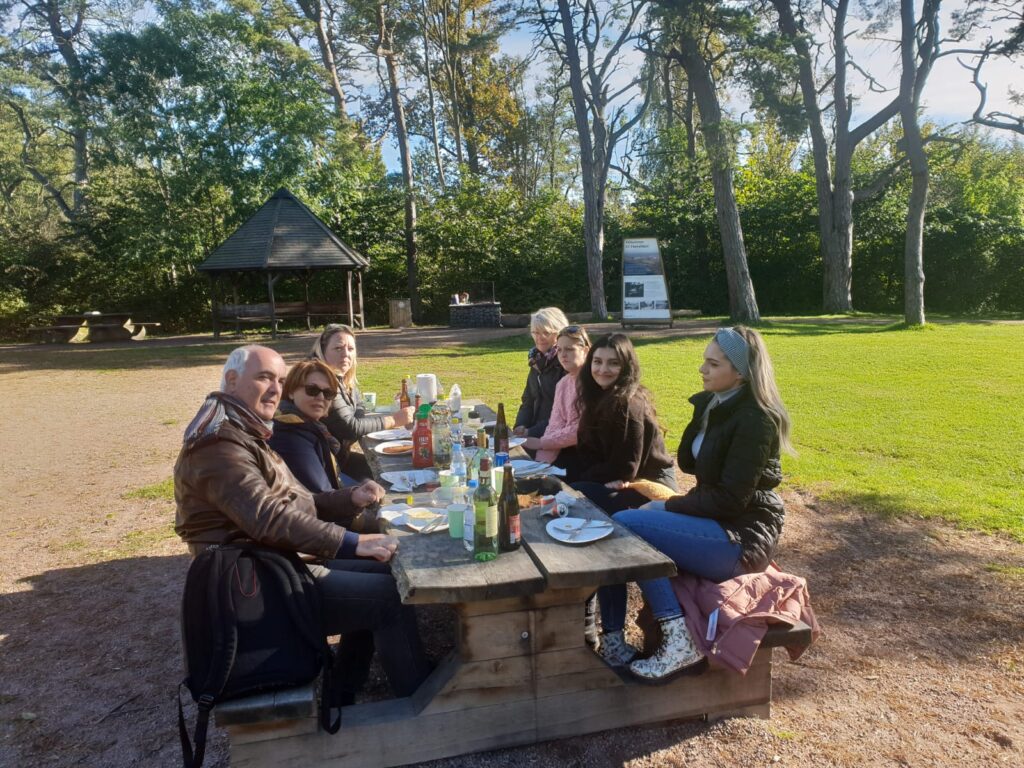
Lunchtime 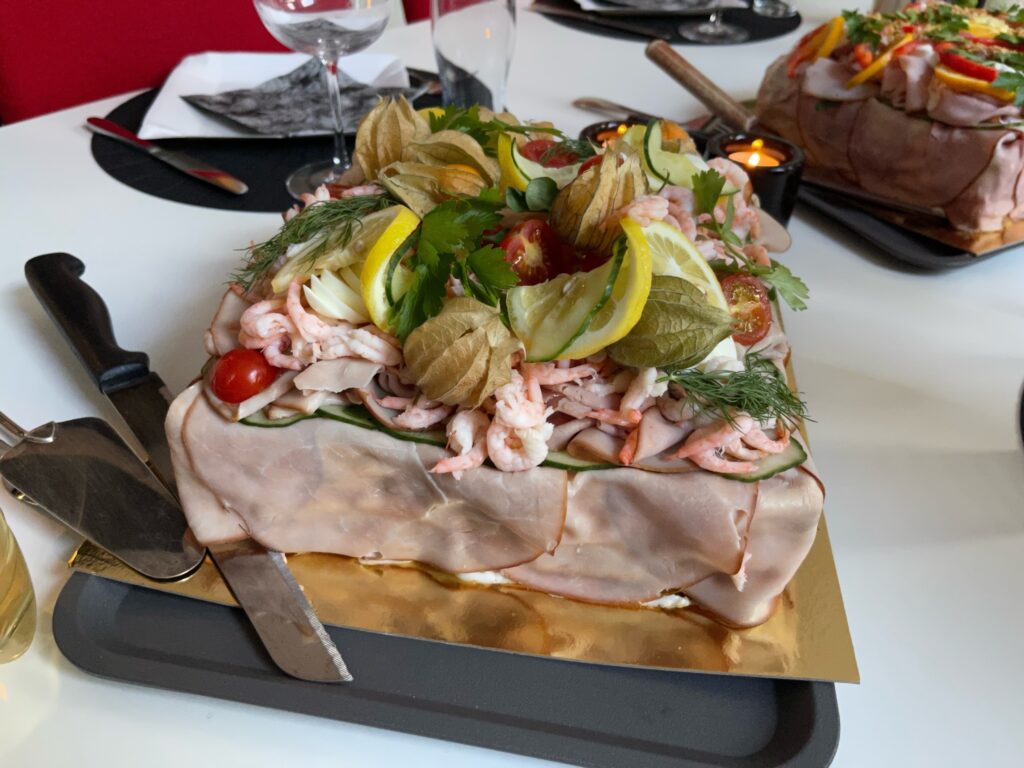
Lunchtime
